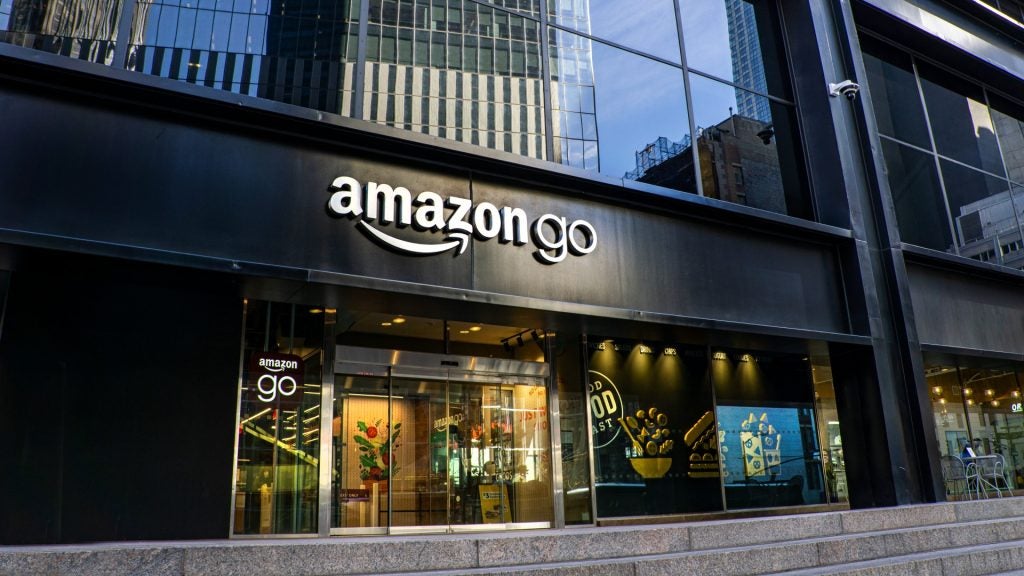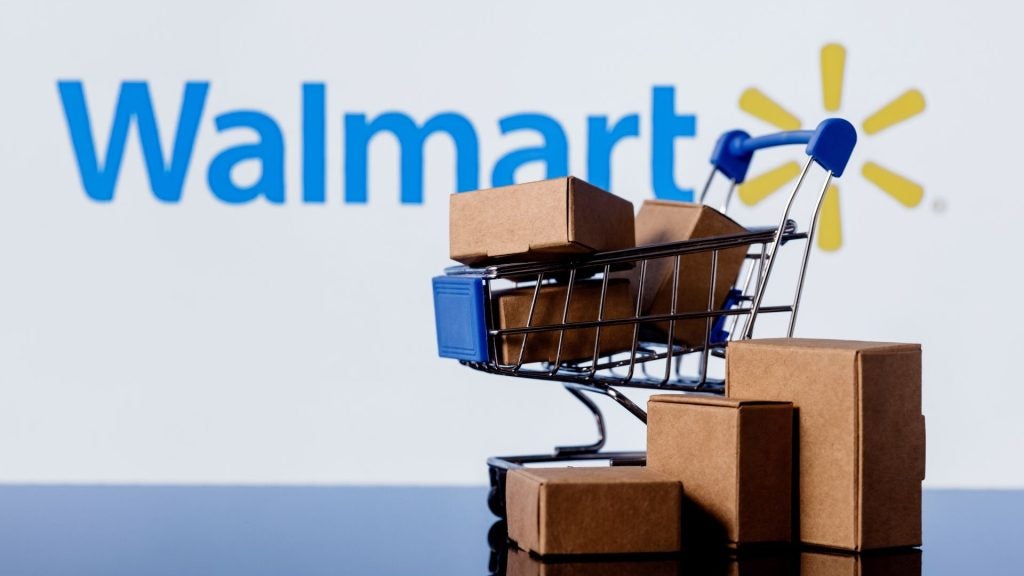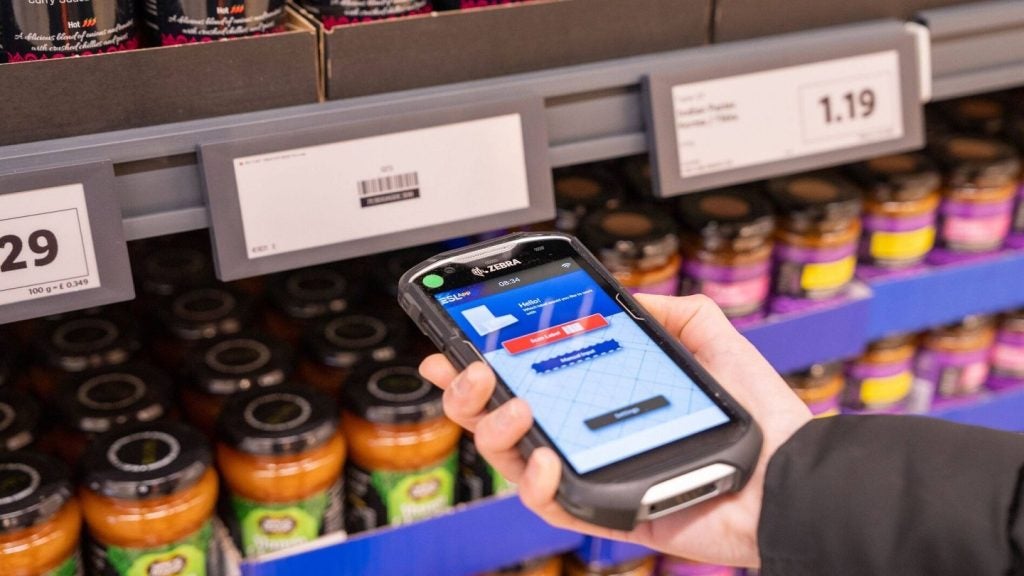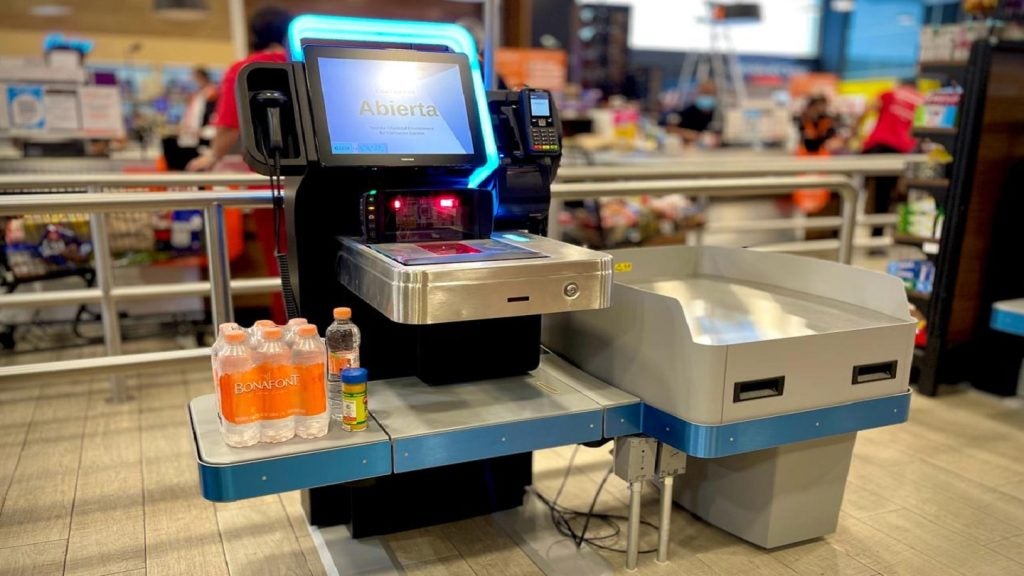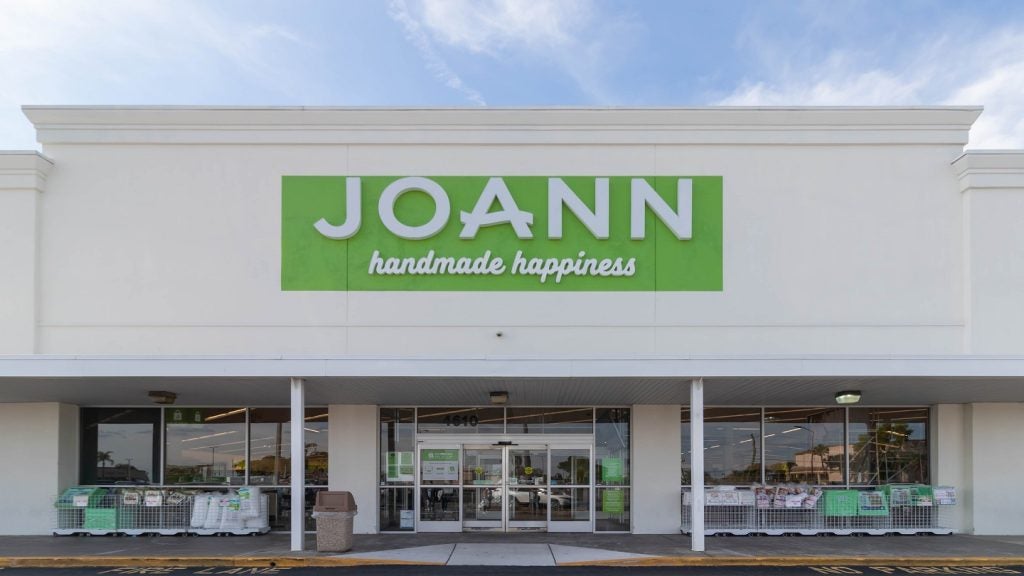Frictionless commerce is unlikely to break 1% of the global in-store retail market despite advancements in sensor and AI technology dramatically reducing prices, according to a new report.
GlobalData's Frictionless Commerce 2024 report suggests that even with a 17.8% CAGR between 2023 and 2030, the market size will barely hit $1bn by 2029.
Amazon has been a major proponent of frictionless stores, launching its first Amazon Go convenience store in 2018 in the US and 2021 in the UK. Its stores work by using a mix of shelf-based sensors, cameras and AI (and, allegedly, cheap labour in India) to track which goods are picked up and by whom. Shoppers are identified by a barcode stored on the Amazon app on their phone, scanned upon entry, allowing them to leave without having to queue for tills or self-checkouts.
Historically, the main bottleneck to wider implementation of this technology has been the cost of sensors and other tracking technology. In coming years, however, GlobalData expects that the rapid decline in the cost of microelectromechanical systems (MEMs) sensors will allow smaller brands to enter the space.
The question is if they would want to. In a GlobalData poll from 2022, 76% of respondents said they would use a checkout-free grocery store in a convenient location but, in practice, performance has been significantly less impressive. The report notes that growth had reached something of a plateau between 2022 and 2023 following store closures internationally, including Amazon shuttering nine of its Go stores in the US. The key concern for those who would not use the stores, according to the same poll, is the lack of in-store customer support, closely followed by job losses to automation.
This may speak to poor communications on behalf of these stores. Most do have employees to ensure good customer service and perform vital tasks like shelf stacking, and while the number is reduced the same was true when self-service machines were introduced, which are now ubiquitous in the Western world.
The third largest concern may be unavoidable, however. Data privacy, ranked as a reason not to use a checkout-free store by 24.4% of survey respondents, is difficult to guarantee. The report explains that “one of the key reasons behind Amazon’s decision to launch the Go project was adding data about human offline behaviour to its online feeds (from its e-commerce sites and other platforms like Prime Video and Alexa)”.
There is also potential for legislation limiting the kinds of data that can be gathered should the need arise. The European Data Protection Supervisor has already raised concerns over the repurposing of shoppers’ profiles and the lack of transparency around data collection.


